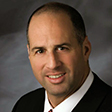5 Reasons 401(k) Loans Are a Bad Idea
Before you borrow from your future self, be sure your needs outweigh the costs.

Profit and prosper with the best of Kiplinger's advice on investing, taxes, retirement, personal finance and much more. Delivered daily. Enter your email in the box and click Sign Me Up.
You are now subscribed
Your newsletter sign-up was successful
Want to add more newsletters?

Delivered daily
Kiplinger Today
Profit and prosper with the best of Kiplinger's advice on investing, taxes, retirement, personal finance and much more delivered daily. Smart money moves start here.

Sent five days a week
Kiplinger A Step Ahead
Get practical help to make better financial decisions in your everyday life, from spending to savings on top deals.

Delivered daily
Kiplinger Closing Bell
Get today's biggest financial and investing headlines delivered to your inbox every day the U.S. stock market is open.

Sent twice a week
Kiplinger Adviser Intel
Financial pros across the country share best practices and fresh tactics to preserve and grow your wealth.

Delivered weekly
Kiplinger Tax Tips
Trim your federal and state tax bills with practical tax-planning and tax-cutting strategies.

Sent twice a week
Kiplinger Retirement Tips
Your twice-a-week guide to planning and enjoying a financially secure and richly rewarding retirement

Sent bimonthly.
Kiplinger Adviser Angle
Insights for advisers, wealth managers and other financial professionals.

Sent twice a week
Kiplinger Investing Weekly
Your twice-a-week roundup of promising stocks, funds, companies and industries you should consider, ones you should avoid, and why.

Sent weekly for six weeks
Kiplinger Invest for Retirement
Your step-by-step six-part series on how to invest for retirement, from devising a successful strategy to exactly which investments to choose.
So, you are thinking of borrowing money from your 401(k). Is this a good idea? On one hand, it could be less expensive to borrow from your 401(k) because the interest rate is typically lower than what a bank or credit card might charge you for a loan. It would also seem that since you are borrowing from yourself, you are paying yourself back—so what is the harm?
Even with these facts, it is something you should give thought to before acting on. Here is why:
1. You lose the tax advantage.
Your 401(k) is often funded with pre-tax dollars coming directly out of your paycheck. This is a big incentive to participate in this type of a retirement plan, as it can lessen your taxable income for the year and provide tax-deferred growth, leading to greater compound growth over time compared with a taxable account.
From just $107.88 $24.99 for Kiplinger Personal Finance
Become a smarter, better informed investor. Subscribe from just $107.88 $24.99, plus get up to 4 Special Issues

Sign up for Kiplinger’s Free Newsletters
Profit and prosper with the best of expert advice on investing, taxes, retirement, personal finance and more - straight to your e-mail.
Profit and prosper with the best of expert advice - straight to your e-mail.
However, when you repay a 401(k) loan, you are paying it back with money that has already been taxed. You will then pay taxes again when the money is eventually withdrawn from the account, which means you will pay taxes on that money twice—effectively wiping out one of the best incentives of the plan.
2. You are no longer making money.
Since the money you borrow is no longer being invested, you will miss out on any potential growth of those dollars for the duration of your loan. The low interest rate you are paying on this loan may not compare to the market appreciation that you are missing. Even more than market appreciation, the compound effect of growth over time will be reduced as a result of having a lesser account balance invested.
Additionally, many plans won't allow you to contribute to your 401(k) until the loan is paid off. This can mean the loss of a tax deduction for as long as your loan is outstanding.
3. You could become trapped.
Most plans require that the loan be repaid within 60 to 90 days if you quit your job. This can keep you tied to your job, forcing you to pass on better opportunities that may come your way. If you are unable or unwilling to pay within the time allotted in your plan, the full amount will be treated like a distribution, subject to income tax and a 10% early-withdrawal penalty if you under the age of 59½. This can create significant additional financial strain on an already stressful life event, and also wipes out the potential for repaying yourself, capping future savings to annual contribution limits.
4. Your salary will decrease.
The repayment of your loan may come directly from your paycheck, which could reduce your take-home pay significantly. By repaying with after-tax dollars and potentially losing a tax-deductible contribution for the year, your taxes could increase and lower your net pay even further.
5. That is not its purpose.
A 401(k) exists so you can save for retirement. If you start borrowing from this account, it may lead to your retirement being inadequately funded. So, no matter how urgent your current situation may appear, it may be nothing compared with what you could face without sufficient funds in your 70s or 80s.
Re-Evaluate Your Lifestyle
The need to borrow from your 401(k) could be a warning that you are living beyond your means. When you can't find any way to fund your lifestyle other than by taking money from your future, it may be time for a serious re-evaluation of your spending habits.
Unfortunately, many people view their 401(k) retirement fund as an easy way to borrow for short-term financing needs, but as you can see from the reasons outlined, it is typically a good idea to avoid borrowing from your 401(k) or workplace retirement plan. Putting your short-term needs ahead of your long-term goals is a quick way to set back your retirement savings. The bottom line: pay yourself first and think long and hard before treating your retirement savings like a piggy bank.
Christopher Scalese, financial adviser, insurance professional and the president of Fortune Financial Group, focuses on assisting in the financial transition from working to retirement years.
Steve Post contributed to this article.
Profit and prosper with the best of Kiplinger's advice on investing, taxes, retirement, personal finance and much more. Delivered daily. Enter your email in the box and click Sign Me Up.

Christopher Scalese, financial adviser, insurance professional and author of the book Retirement is a Marathon, Not a Sprint, is the president of Fortune Financial Group. Scalese has spent much of his career assisting with the financial transition from the working years to the retirement years. His primary goal is to help structure finances for steady income, while limiting risk and avoiding unnecessary taxation. Scalese is a financial representative and a life and health insurance licensed professional.
-
 The New Reality for Entertainment
The New Reality for EntertainmentThe Kiplinger Letter The entertainment industry is shifting as movie and TV companies face fierce competition, fight for attention and cope with artificial intelligence.
-
 Stocks Sink With Alphabet, Bitcoin: Stock Market Today
Stocks Sink With Alphabet, Bitcoin: Stock Market TodayA dismal round of jobs data did little to lift sentiment on Thursday.
-
 Betting on Super Bowl 2026? New IRS Tax Changes Could Cost You
Betting on Super Bowl 2026? New IRS Tax Changes Could Cost YouTaxable Income When Super Bowl LX hype fades, some fans may be surprised to learn that sports betting tax rules have shifted.
-
 The 4 Estate Planning Documents Every High-Net-Worth Family Needs (Not Just a Will)
The 4 Estate Planning Documents Every High-Net-Worth Family Needs (Not Just a Will)The key to successful estate planning for HNW families isn't just drafting these four documents, but ensuring they're current and immediately accessible.
-
 Love and Legacy: What Couples Rarely Talk About (But Should)
Love and Legacy: What Couples Rarely Talk About (But Should)Couples who talk openly about finances, including estate planning, are more likely to head into retirement joyfully. How can you get the conversation going?
-
 How to Get the Fair Value for Your Shares When You Are in the Minority Vote on a Sale of Substantially All Corporate Assets
How to Get the Fair Value for Your Shares When You Are in the Minority Vote on a Sale of Substantially All Corporate AssetsWhen a sale of substantially all corporate assets is approved by majority vote, shareholders on the losing side of the vote should understand their rights.
-
 How to Add a Pet Trust to Your Estate Plan: Don't Leave Your Best Friend to Chance
How to Add a Pet Trust to Your Estate Plan: Don't Leave Your Best Friend to ChanceAdding a pet trust to your estate plan can ensure your pets are properly looked after when you're no longer able to care for them. This is how to go about it.
-
 Want to Avoid Leaving Chaos in Your Wake? Don't Leave Behind an Outdated Estate Plan
Want to Avoid Leaving Chaos in Your Wake? Don't Leave Behind an Outdated Estate PlanAn outdated or incomplete estate plan could cause confusion for those handling your affairs at a difficult time. This guide highlights what to update and when.
-
 I'm a Financial Adviser: This Is Why I Became an Advocate for Fee-Only Financial Advice
I'm a Financial Adviser: This Is Why I Became an Advocate for Fee-Only Financial AdviceCan financial advisers who earn commissions on product sales give clients the best advice? For one professional, changing track was the clear choice.
-
 I Met With 100-Plus Advisers to Develop This Road Map for Adopting AI
I Met With 100-Plus Advisers to Develop This Road Map for Adopting AIFor financial advisers eager to embrace AI but unsure where to start, this road map will help you integrate the right tools and safeguards into your work.
-
 The Referral Revolution: How to Grow Your Business With Trust
The Referral Revolution: How to Grow Your Business With TrustYou can attract ideal clients by focusing on value and leveraging your current relationships to create a referral-based practice.